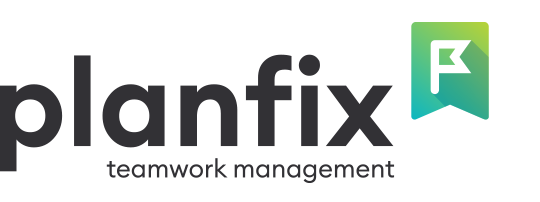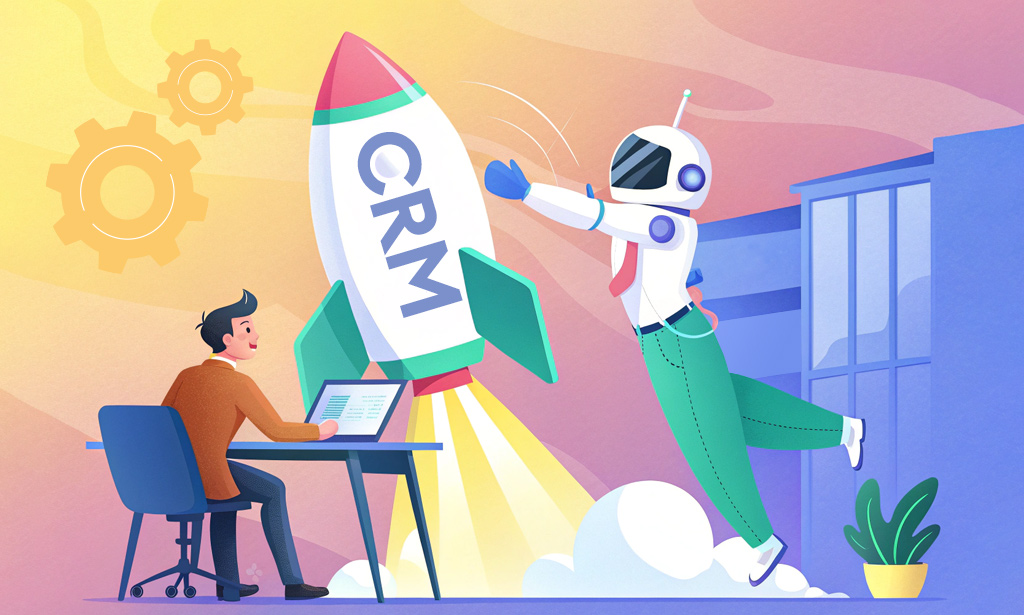
Customer relationship management has reached a critical inflection point. Traditional CRM systems, while functional, often burden teams with tedious manual data entry, sluggish response times, and generic customer interactions that fail to drive meaningful engagement. Sales teams spend countless hours updating records, marketing departments struggle with broad-brush campaigns that miss the mark, and customer service representatives lack the insights needed to proactively address client concerns.
The result? Missed opportunities, frustrated customers, and revenue leakage that could have been prevented. But what if your CRM could think, learn, and act intelligently on your behalf?
Planfix AI automation transforms your customer relationship management from a reactive data repository into a proactive business intelligence engine. By integrating artificial intelligence directly into your CRM workflows, Planfix eliminates the friction points that slow down your team while delivering the personalized, timely interactions that modern customers expect.
Why AI is a Game-Changer for CRM?
Data Analysis & Predictive Insights
Modern businesses generate enormous volumes of customer data every day — website interactions, email exchanges, purchase histories, support tickets, and social media engagement. Traditional CRM systems store this information but struggle to extract meaningful patterns or actionable insights from it. AI changes this fundamental limitation by processing massive datasets in real-time, identifying subtle trends that human analysis might miss.
Machine learning algorithms can analyze thousands of customer touchpoints simultaneously, automatically scoring leads based on behavioral patterns, segmenting customers into precise categories, and predicting which prospects are most likely to convert. This isn’t just about organizing data more efficiently — it’s about uncovering hidden opportunities and risks that directly impact your bottom line.
Sentiment & Behavioral Detection
Beyond raw data analysis, AI brings emotional intelligence to your CRM operations. Advanced natural language processing can interpret the tone and sentiment in customer emails, chat conversations, and call transcripts, automatically flagging at-risk accounts or identifying upselling opportunities based on customer satisfaction indicators.
For instance, AI can detect when a long-term client’s communication patterns shift from enthusiastic to neutral, triggering proactive retention workflows before churn becomes inevitable. Similarly, it can identify prospects showing increased engagement across multiple channels, alerting sales teams to strike while the iron is hot.
AI Automation Features in Planfix
Smart Lead Scoring & Segmentation
Planfix AI revolutionizes lead management by automatically qualifying and prioritizing prospects based on comprehensive behavioral analysis. The system evaluates multiple data points — website activity, email engagement, company size, industry, and interaction frequency — to assign dynamic lead scores that evolve in real-time.
This intelligent segmentation goes beyond simple demographic categorization. AI identifies micro-segments based on behavioral patterns, enabling highly targeted marketing campaigns and personalized sales approaches. Sales teams receive qualified leads with detailed context about each prospect’s interests, pain points, and buying signals, dramatically improving conversion rates.
Want to explore more ways to leverage segmentation for higher sales and stronger customer relationships? Check out our article: Customer Base Segmentation: Boosting Sales and Strengthening Loyalty.
Automated Outreach Workflows
Manual follow-up sequences are time-consuming and prone to human error. Planfix AI automation creates sophisticated, multi-channel outreach workflows that adapt based on recipient behavior. The system automatically schedules personalized email sequences, sets task reminders for phone calls, and coordinates touchpoints across different communication channels.
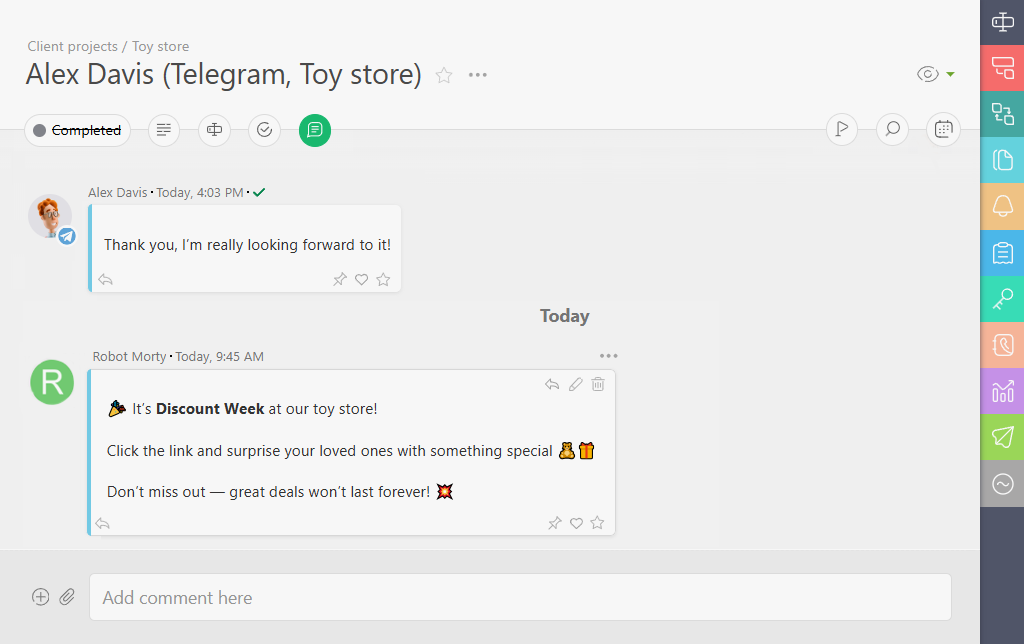
These workflows aren’t rigid templates — they’re dynamic sequences that adjust based on prospect responses. If a lead opens multiple emails but doesn’t respond, the AI might trigger a different messaging approach or suggest a phone call. If someone engages heavily with specific content, the AI Email Assistant Planfix can automatically send related resources or schedule a demo.
AI-Powered Content Creation
Personalization at scale has always been the holy grail of marketing automation. Planfix AI makes this possible by generating customized communications based on individual customer profiles, interaction histories, and behavioral patterns. The system can draft personalized email templates, create targeted social media messages, and even suggest talking points for sales calls.
This generative capability extends beyond simple mail merge functionality. AI analyzes successful communication patterns within your organization, learning which messaging resonates with different customer segments and automatically optimizing future outreach for maximum impact.
Predictive Sales Forecasting & Reporting
Traditional sales forecasting relies heavily on gut instinct and historical averages. Planfix AI brings scientific precision to revenue prediction by analyzing deal progression patterns, seasonal trends, and individual sales rep performance metrics. The system can identify deals at risk of stalling, predict which opportunities are most likely to close within specific timeframes, and provide accurate pipeline health assessments.
These predictive insights enable more informed decision-making at every level of the organization. Sales managers can allocate resources more effectively, executives can make confident revenue projections, and individual reps can prioritize their efforts on the highest-value opportunities.
Customer Support & Churn Prevention
Proactive customer success management becomes possible when AI continuously monitors customer health metrics across all touchpoints. Planfix AI tracks engagement patterns, support ticket frequency, payment behaviors, and communication sentiment to identify accounts showing early warning signs of dissatisfaction.
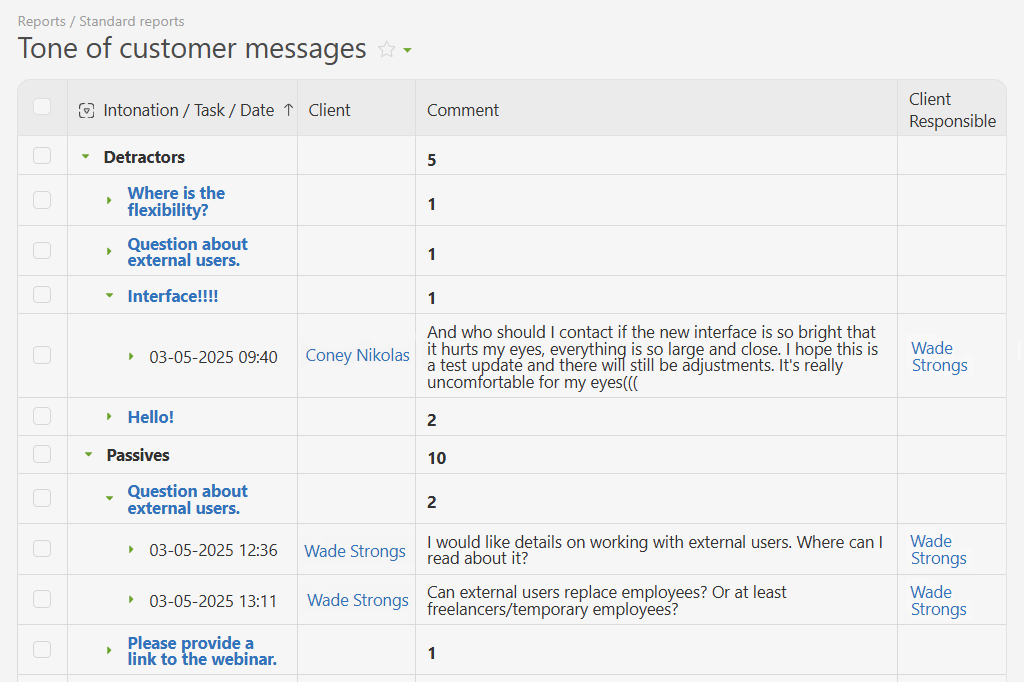
When the system detects potential churn risks, it automatically triggers retention workflows — scheduling check-in calls, sending personalized offers, or routing high-risk accounts to specialized customer success representatives. This proactive approach often resolves issues before customers even realize they’re having problems.
Best AI CRM Practices & Implementation Tips
Data Quality First
The foundation of effective AI automation is clean, accurate data. Before implementing any AI-driven workflows, conduct a comprehensive audit of your existing CRM data. Remove duplicate records, standardize formatting, update outdated contact information, and establish clear data entry protocols for ongoing maintenance.
Remember the fundamental principle: garbage in equals garbage out. Even the most sophisticated AI algorithms will produce poor results if they’re working with incomplete or inaccurate data. Invest time upfront in data cleansing — it will pay dividends throughout your AI implementation.
Start Small
Resist the temptation to automate everything at once. Begin with a single, well-defined use case where you can clearly measure success. Lead scoring is often an ideal starting point because it provides immediate value while allowing your team to become comfortable with AI-driven insights.
Launch your pilot program with a small group of users, monitor performance closely, and gather feedback before expanding. This iterative approach allows you to refine your processes and build organizational confidence in AI automation.
Human + AI Workflow
The most successful AI implementations combine machine intelligence with human oversight and creativity. Design workflows where AI handles data processing, pattern recognition, and routine tasks, while humans focus on relationship building, strategic decision-making, and complex problem-solving.
Establish clear handoff points between automated processes and human intervention. For example, AI might score and route leads automatically, but important deals should still involve personal sales conversations. This hybrid approach maximizes efficiency while preserving the human touch that customers value.
Want to see how this works in real business scenarios? Check out our article: Workflow Automation Use Cases.
Iterate & Train Models
AI systems improve through continuous learning and refinement. Regularly review the performance of your automated workflows, analyze outcomes, and adjust parameters based on results. Customer behaviors and market conditions evolve over time, so your AI models must adapt accordingly.
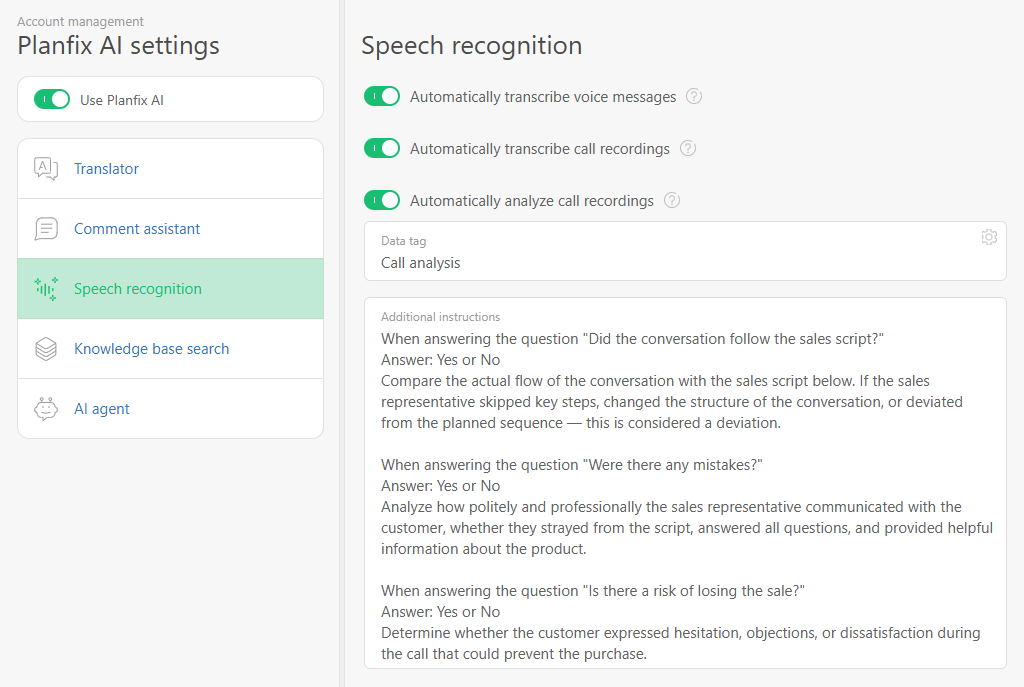
Create feedback loops where sales and customer success teams can easily report on AI-generated insights and recommendations. This human feedback helps train the system to become more accurate and useful over time.
Real-World Use Cases & Success Stories
Companies implementing AI in CRM automation consistently report significant improvements across key performance metrics. Organizations typically see lead conversion rates increase by 20-50% within the first six months of implementation, as AI-powered lead scoring and personalized outreach deliver higher-quality prospects to sales teams.
Sales productivity improvements are equally impressive, with teams reporting up to 34% efficiency gains through automated task management, intelligent scheduling, and AI-generated conversation insights. Sales representatives spend less time on administration and more time building relationships with qualified prospects.
Perhaps most importantly, businesses using AI for customer success and churn prevention report 15-25% reductions in customer attrition rates. Proactive retention workflows, powered by sentiment analysis and behavioral monitoring, help companies address customer concerns before they escalate to cancellations.
Planfix-Specific AI-Powered CRM Benefits
Seamless Integration with Planfix Ecosystem
Unlike standalone CRM tools that require complex integrations, Planfix’s CRM with AI automation works natively within the platform’s existing tasks, project management, and communication tools. This integration eliminates data synchronization issues and provides a unified workspace where sales, marketing, and customer success teams can collaborate effectively.
Flexible Customization
Planfix combines rule-based automation with AI, creating a powerful yet accessible system that adapts to unique business requirements. Users can create custom workflows without extensive technical knowledge while still leveraging sophisticated machine learning capabilities.
Transparent Cost-Benefit
Organizations implementing Planfix AI automation typically see measurable ROI within 90 days. Common benefits include 10-15 hours of time savings per user per week, 25-40% improvements in lead conversion rates, and 20-30% reductions in customer acquisition costs. These improvements compound over time as AI systems become more refined and organizational processes mature.
Step-by-Step AI Implementation in CRM Checklist
- Audit your current CRM usage & pain points – Document existing workflows, identify bottlenecks, and gather input from all user groups about their biggest challenges and desired improvements.
- Cleanse and structure data – Remove duplicates, standardize formats, update contact information, and establish ongoing data quality protocols.
- Define target AI use cases and KPIs – Select specific automation goals with measurable success criteria, such as improving lead response times or increasing email engagement rates.
- Launch a pilot program – Start with a single automation workflow, test with a small user group, and gather feedback before broader implementation.
- Evaluate performance & iterate – Monitor key metrics, analyze results, and refine workflows based on actual performance data and user feedback.
- Scale across sales, support, and marketing teams – Gradually expand successful automations to additional teams and use cases, maintaining focus on training and change management.
Conclusion & Next Steps
AI automation represents the future of customer relationship management, transforming reactive data repositories into proactive business intelligence engines. Organizations implementing Planfix AI automation gain competitive advantages through improved efficiency, enhanced personalization, accurate forecasting, and stronger client loyalty.
The benefits extend beyond operational improvements to fundamental business transformation. Sales teams become more strategic, marketing campaigns deliver better results, and customer success efforts prevent churn before it occurs. Most importantly, customers receive more personalized, timely, and valuable interactions throughout their entire lifecycle.
The time to act is now. While competitors struggle with manual processes and generic communications, your organization can lead with intelligent automation that delivers measurable results.
See Planfix AI in action – boost your CRM today.
